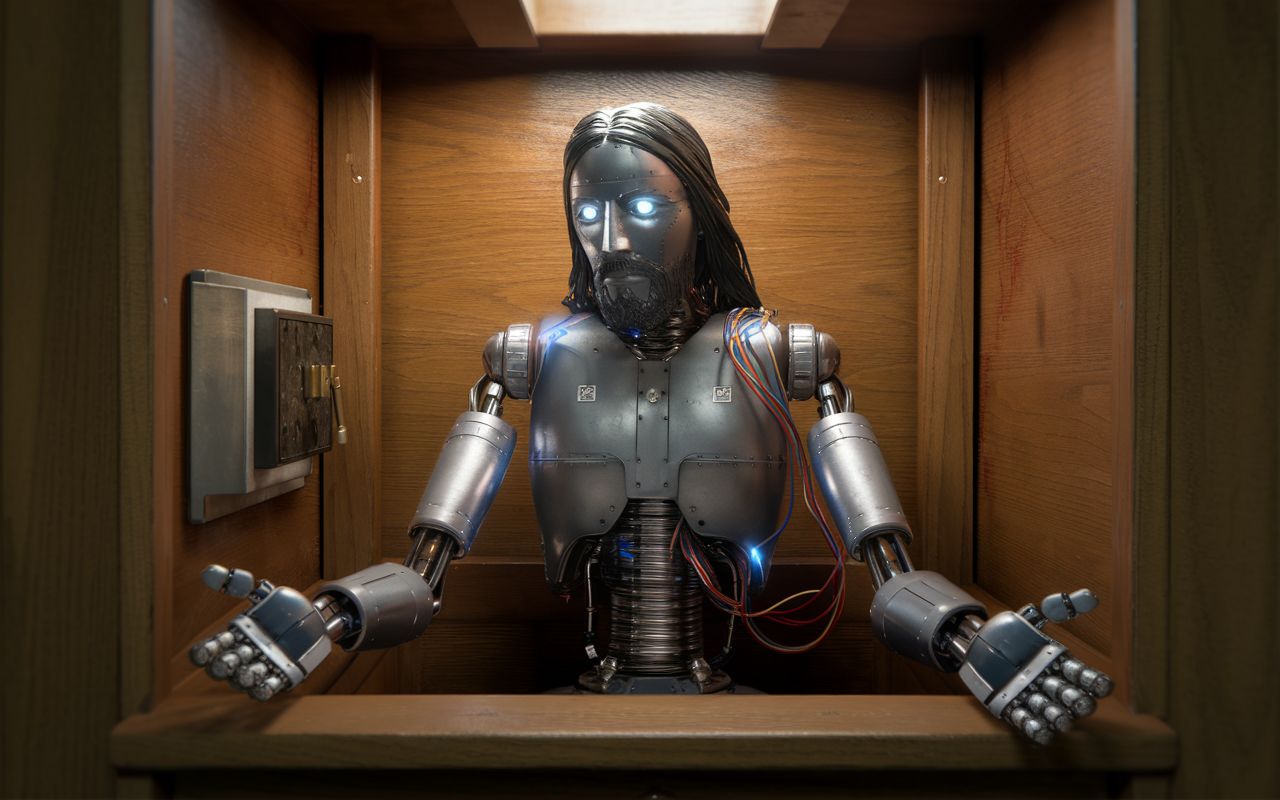When AI pretends to be Jesus in a confessional: this chapel sparks debate 🤔
Published by Cédric,
Article author: Cédric DEPOND
Source: The Guardian
Other Languages: FR, DE, ES, PT
Article author: Cédric DEPOND
Source: The Guardian
Other Languages: FR, DE, ES, PT
Follow us on Google News (click on ☆)

Launched in August, this project aims to observe believers' reactions to a virtual Jesus capable of answering religious questions in real time. The AI, which can communicate in 100 languages, provides responses based on theological texts, ranging from biblical passages to more personal reflections.
As part of the experiment, visitors interact with the Jesus avatar in a confessional. The AI program was trained to adhere to religious principles, but some users found the interactions occasionally too superficial or repetitive.
The initiative is part of a broader series of experiments integrating immersive technologies such as augmented and virtual reality. The chapel aimed to meet a need for spiritual interactivity by offering a more accessible form of dialogue, though some may view it as desecration.
The experience attracted a large audience, both from Switzerland and abroad. Two-thirds of participants stated that they had a spiritual experience, although some found the AI's responses too generic. These mixed reviews highlight the diversity of expectations and perceptions regarding technology in a religious setting.
The use of AI also raises ethical questions. The creators of the avatar took precautions by conducting tests to avoid doctrinal errors, but there remains a risk associated with unpredictability in the responses. The experiment underscored the need to regulate such technologies to safeguard the integrity of spiritual messages.
Despite critics, the initiative sparked a broader debate about the role of technology in faith. Marco Schmid, the theologian behind the project, believes AI can play a role in spiritual guidance, especially by offering accessible dialogue to everyone, at any time.
The "Deus in Machina" project marks a turning point in the contemplation of the intersection between faith and technology. While some see this experiment as progress, others perceive it as a gimmick. The future of such initiatives continues to raise many questions.
The experiment was discontinued in October, but debates persist regarding the integration of AI into religion. While some believe in its potential, others warn of the dangers of such developments. The debate on the authenticity of faith in the digital age is far from over.